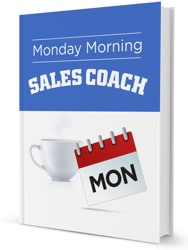Sounds Like You’re Busy
Problem: The following frustration was shared with me by a salesperson the other day. “I reached out to 127 potential prospects this week and only 8 of them gave me the time I needed to tell them what I do. The rest of them said they were busy and didn’t have time to talk. I have been taught that prospects are concerned that salespeople will take up too much of their time so I always ask if they have a few minutes to talk. What do I have to do to earn a minute of time?”
Analysis: In today’s fast paced business environment it is uncommon to find a prospect who is not busy and pressed for time. In fact, people who have too much time on their hands are generally not good prospects. In a cold calling situation, when people are faced with the question, “Have you got a minute?” there’s sufficient psychological pressure to generate a response like “No, I’m busy.” This negative response is predictable 80% of the time. Looking at it from a psychological perspective, it is a form of emotional stroke for a busy person to reinforce how important their time is to an unknown caller. Once making the decision to state how busy they are, a prospect is likely to support that decision by ending the call.
Solution: Asking a negative question sometimes will produce better results and a more truthful response early in a telephone call. And it will improve call ratios. Start a call as usual by stating your name and your company with appropriate tone, pace, and articulation (very important), then ask the negative question. Appropriate questions might be: “Sounds like I caught you at a bad time?” or “I get the feeling I caught you in the middle of something?” (Again, delivered with appropriate deferential tone, pace, and articulation).
The difference with this approach is subtle. It’s a pattern interrupt. If the prospect responds with, “Yes you did,” then you get credit for respecting their time. Yet often they’ll tell you when to call back or ask you what your call is about so they can decide whether or not to speak to you. At this point you can use your introductory pain probe (elevator speech) to see if they will speak to you further. This approach is different enough that when executed properly, it will help to earn you a minute of time with more prospects.


